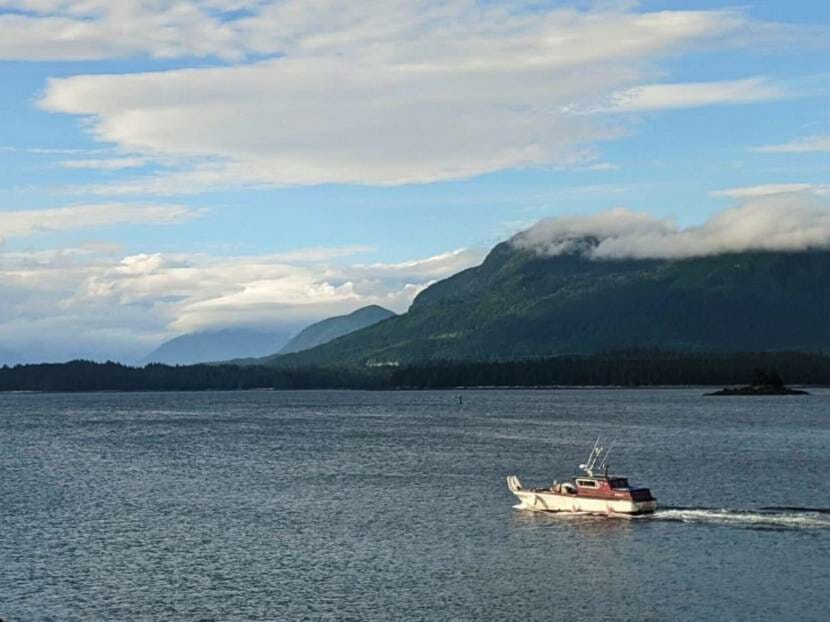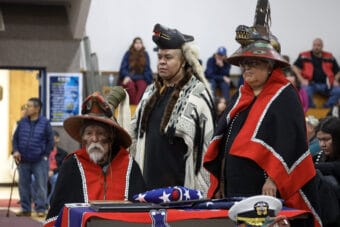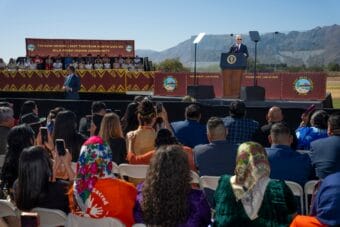
Alaska’s sole Native reservation has taken a fishing dispute with state authorities to a federal appeals court. Metlakatla Indian Community is asking the U.S. Circuit Court of Appeals for the 9th Circuit to rule that Metlakatla’s tribal members don’t need state permits to fish in their traditional waters.
Congress created the Annette Islands Reserve in the late 19th century as a self-sustaining home for the people of Metlakatla.
Now, the Metlakatla Indian Community tribal government argues the 1891 law also gives its modern-day members unfettered rights to commercially fish around Ketchikan and Prince of Wales Island.
Its tribal members are the only people authorized to fish within 3,000 feet of the reserve’s shores. But in other parts of the southern panhandle, the same rules apply to them as anyone else. And the tribe took the Dunleavy administration to court last year to force the issue.
But a federal judge dismissed Metlakatla’s case. That brings us to Monday’s oral arguments.
“The district court erred in three main ways that are interrelated,” said Metlakatla’s attorney, Julie Weis, addressing the 9th Circuit in California.
She said established precedent and longstanding principles of Indian law provide a legal basis for Metlakatla’s interpretation of the 1891 law creating the reserve: namely, that Metlakatla’s tribal members have a right to fish the southern panhandle.
The problem for Metlakatla’s case is that the 1891 law doesn’t explicitly mention fishing. The 101-word statute says only that the reservation was set aside “for the use of the Metlakahtla Indians.”
But Weis cited a 1996 9th Circuit opinion that found that when reservations are created by fiat — as opposed to by a negotiated treaty — important rights and privileges are often left out of the text.
“The court indicated that we should look at the circumstances of the reservation’s creation and the history of the people for whom the reservation was created,” Weis said.
And she said Metlakatla’s fishermen had long harvested in waters within a day’s travel from their home. She said that was proof enough that they did not believe they were bound by the reserve’s waters extending out 3,000-feet.
“The facts alleged in the community’s complaint and the inferences drawn therefrom demonstrated that an Indian in Southeast Alaska more than a century ago could not have conceived of an invisible line around the reserve beyond which it could not fish,” Weis said.
Weis argued that the U.S. Supreme Court had recognized the importance of fishing to Metlakatla’s citizens more than a century ago.
“The court stated, Congress must be held to have known that without the food yield of the sea, these Indians could not survive there being a little or no agricultural land on the islands, or for that matter, in all southeastern Alaska,” she said.
That 1918 Alaska Pacific Fisheries case upheld Metlakatla members’ exclusive right to fish in waters near Annette Island. But Weis said the tribe was not a party to the case back then, so they weren’t able to argue for the wider interpretation they’re seeking in 2021.
Weis asked the three-judge panel to reverse a lower court judge’s dismissal and instruct the District Court to define Metlakatla’s fishing rights off the reservation.
But the state’s attorney fired back that Metlakatla’s demands would give their tribal citizens an unfair advantage over other Alaskans. Alaska Assistant Attorney General Laura Wolff said Alaskans have to follow uniform fishing rules and regulations.
“They’re not asking just to share fishing,” she said. “They’re asking for a priority.”
She emphasized that the 1891 law doesn’t say anything about fishing, and the Congressional Record doesn’t indicate that was ever a consideration.
“And these facts don’t add up to the legal conclusion that the act created an off-reservation right when the act is completely silent,” she said.
Wolff argued that the state’s fishing permit system, which in most cases only allows a limited number of vessels to commercially fish in state waters, was the state’s primary method to prevent overfishing. Wolff argued that allowing otherwise would undermine that.
“Opening up the limited entry program would derail the conservation purposes,” she said.
Judge William Fletcher, part of the three-judge panel, seemed to question that last point.
“It may derail this particular program, but I don’t think it would disable the state from regulating for purposes of conservation,” the judge said.
He said prior cases had held that tribal fishing rights are subject to state regulations aimed at conserving fisheries. Metlakatla’s attorney agreed.
A ruling is expected next year.



